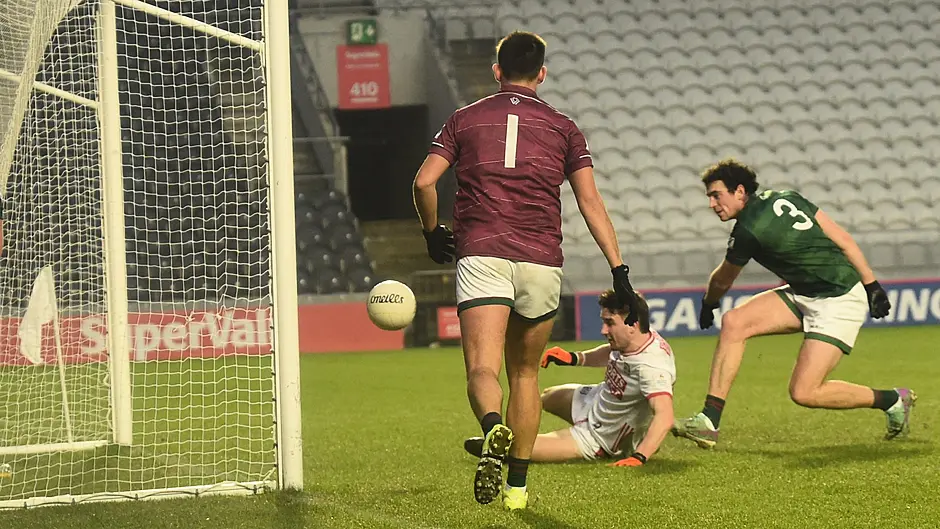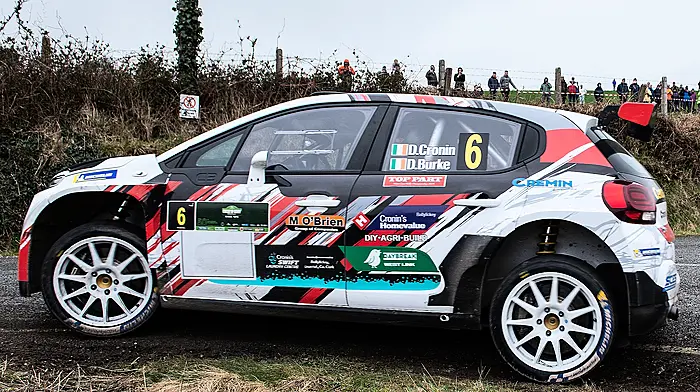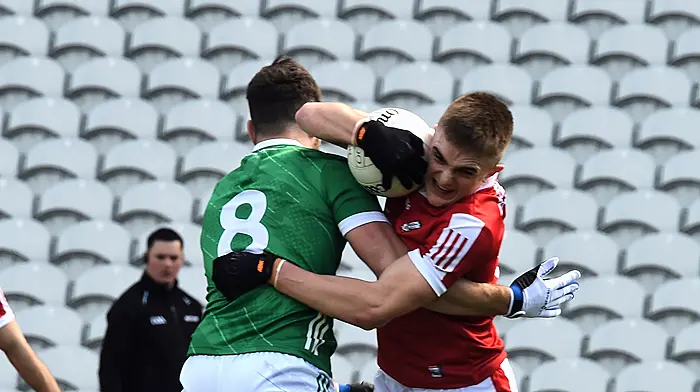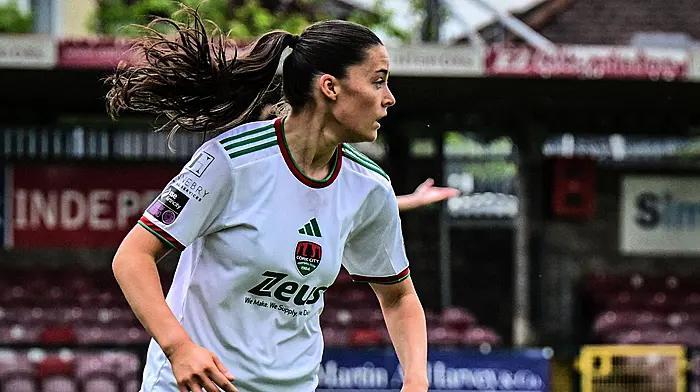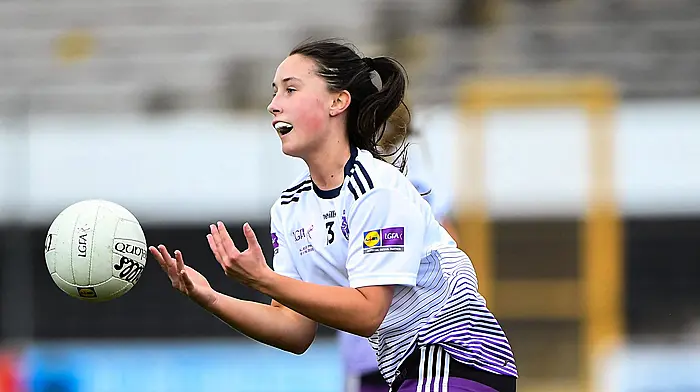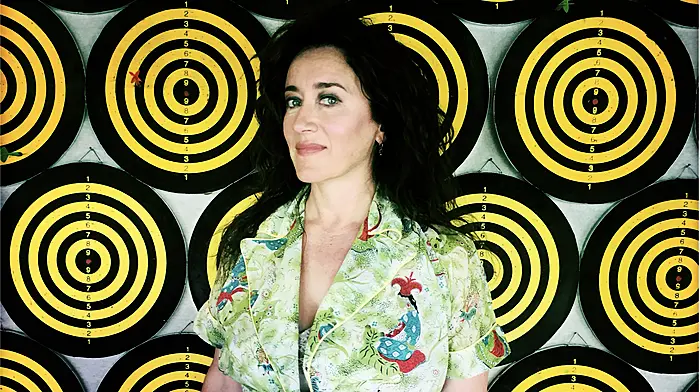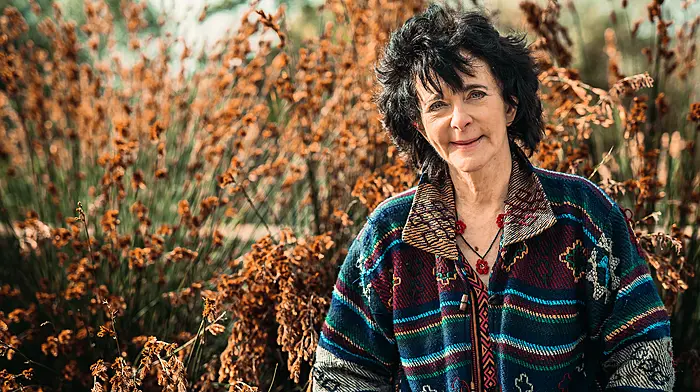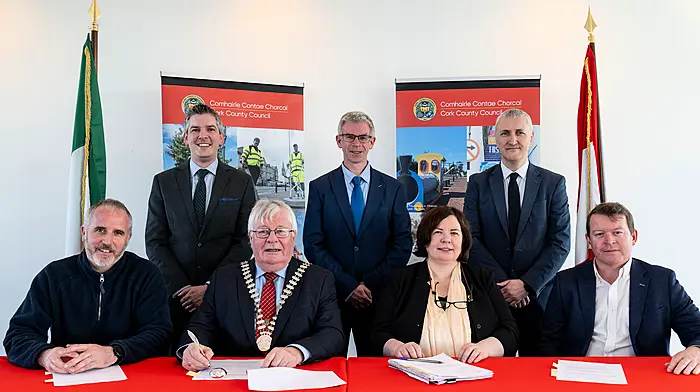
A POST-Valentine’s Day treat was served up in Páirc Uí Chaoimh on Saturday evening as Cork and Westmeath shared 53 points between them. Happily for Cork it was the men in white who won by just a single, solitary point (3-18 to 3-17) when the final whistle went.
If I were John Cleary, I would be pleased with the win and two points secured, but acutely aware that there is huge work to be done, and major improvement required ahead of sterner tests against Monaghan this weekend and then Roscommon.
Cork started the better of the two teams and created two clear goal chances which were squandered by Paul Walsh and Seán McDonnell. Cork had three points on the board, including a two-pointer from Brian O’Driscoll, before Rebels’ shot-stopper Patrick Doyle was beaten by Matthew Whittaker for the opening goal. Doyle got his hand to the low effort but not enough to prevent it from trickling over the line. Another point for Westmeath brought the sides level despite Cork’s early dominance and the tone was set for a topsy-turvy encounter that kept everyone engaged all the way through.
Chris Óg Jones responded with a close-range finish after good work by McDonnell. Old habits die hard though, and Cork soon reverted to the attacking game-plan that has frustrated me so much in recent years. After an opening 15 minutes or so where the attack was varied and unpredictable and chances were created, Westmeath fell back into a defensive set-up with bodies protecting the 40-metre arc. In response, Cork reverted to type. Four or five players would line across the middle of the field and most if not all the rest head for the sidelines, the ball is run to the wings and a flurry of handpasses is designed to create space for a two-point shot.
To their credit, with a breeze behind them, Cork kicked four from beyond 40 metres in the first half which helped build up a six-point lead with half-time coming into view. I’m still not a fan of our reliance on this strategy, but it was somewhat more successful against the reduced numbers in defence. It’s clear also that giving the attacking team an extra man to attack with is making life very difficult for defences and the move to an 11 v 11 game needs to happen and happen fast. Maybe Jim McGuinness did have a point after all.
Westmeath were creating chances every time they went forward, and Doyle had to produce a smart double save to prevent a second Westmeath goal. The visitors clipped five points in a row to make it a one-point game at half-time, 1-10 to 1-9. All to play for and Westmeath would have the benefit of the breeze behind them for the second half. Cork would again start the stronger in the second period with points from Jones and Colm O’Callaghan before another purple patch for the visitors yielded another goal and three points, including their first of three two-pointers in the second half.
At least one of these scores looked suspiciously close to being inside the arc when kicked, and I am starting to feel that the two-pointers are a little too handy to get, certainly for the inter-county teams. There were seven doubles in total in this game in the middle of February. In the lighter air of late spring and mid-summer, we could easily see double figures. The likes of Dublin and Kerry could dish out serious hammerings in Leinster and Munster respectively.
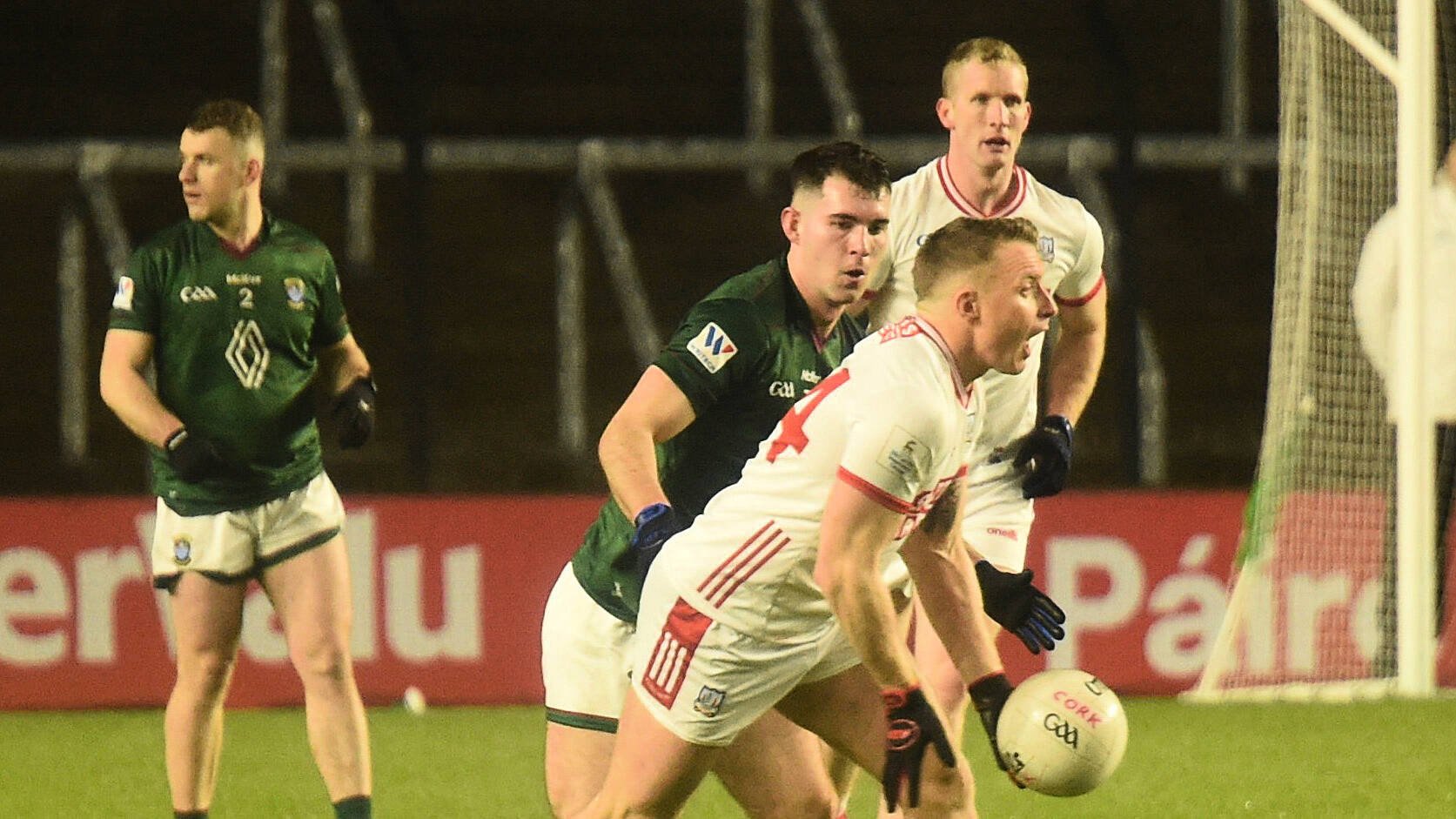 Brian Hurley made his first appearance of the season for Cork against Westmeath. (Photo: George Hatchell)
Brian Hurley made his first appearance of the season for Cork against Westmeath. (Photo: George Hatchell)
I feel like the double value point should be something of a rarity in the game, reserved for booming points kicked from longer range. If they are too prevalent in game I would either extend the arc to 45 metres, increase the value of the goal to four, or both! I do understand the argument that this would be too far for kick-outs into a wind, so I would suggest extending the existing ‘D’ a few metres instead if this was done. It’s also possible that I’m over-reacting to one weekend of action so I’m happy to leave the existing 40-metre arc in place for the time being and see how it goes for the season ahead at club and county level.
In direct correlation with this, I feel the ease which two-pointers were gained devalues the three points awarded for a goal. One example in the first half saw Eoghan McSweeney ignore a wide open Seán Walsh in splendid isolation behind the Westmeath defence. It was symptomatic of Cork’s obsession with the outside shot to the detriment of attacking the danger area and perhaps illustrates that the goal needs the higher value.
Generally, though, the rule is more positive than negative, and the high-scoring entertaining fare we have seen have cast the new rules in a very favourable night, even if visiting manager and former Cavan midfielder Dermot McCabe doesn’t seem to agree based on his comments to the media in the aftermath of the game. Some managers and coaches are going to have to get used to having less control over the fare served up on the pitch, and that is definitely a good thing.
Returning to matters on the field, Cork introduced the experienced trio of Ruairi Deane, Ian Maguire and Brian Hurley early in the second half in an attempt to turn the tide. Hurley wasn’t at his best when he came in and was off target with a couple of efforts, but Deane and Maguire both made positive impressions, winning kickouts and breaking through a porous Westmeath rearguard. Again, Cork’s kick-out strategy is extremely one-dimensional, favouring the long kick-out to the left wing with the vast majority of the restarts. To be fair, Cork did get some joy from this tactic, with O’Callaghan and Maguire dominant in the air and Deane and Matty Taylor breaking from deep.
One such break late in the game saw Tommy Walsh place Jones for his hat-trick goal and the points looked safe and sound. Cue some more porous Cork defending and Ronan Wallace was on hand to palm to the net after Westmeath were allowed to cut along the endline far too easily. Cork had two minutes to hold out until the hooter would be sounded, yet the decision making during these 120 seconds or so left much to be desired. First, Rory Maguire took on a snap-shot under pressure that never threatened the goal and succeeded only in handing possession back to Westmeath.
When Cork repelled the subsequent attack and gained possession of the football with time all but up, Patrick Doyle made the ill-advised decision to join the attack, compounding this then with an even worse choice as he attempted a high, hanging cross-field pass to Daniel O’Mahony that really should have been intercepted. Luckily for Doyle, his Knocknagree team-mate O’Mahony spared his blushes by winning a ball he had little right to win. The hooter sounded moments later, and Cork had held on by the skin of their teeth.
Credit where it is due, the win was crucial if somewhat unconvincing. Cork now face a trip to Inniskeen, where our 2024 championship hopes met their end, to face promotion rivals Monaghan. The winners of this encounter will likely become favourites to join leaders Roscommon in Division 1 next year. Monaghan will start as favourites for this one, however they gave up a good-sized lead to the Rossies themselves last weekend, so they may be vulnerable if Cork can tighten up defensively. The old saying that the biggest game is always the next one certainly applies in this case. Let’s hope for better fortune than our last venture to the same venue.
***
Early on Tuesday morning news came through that Carbery has suspended the divisional U21 competition and now hope to complete the semi-finals and final in August.
I covered this topic in detail just a couple of weeks ago, but the unsatisfactory nature of the current situation for clubs at this age level is clear for all to see. Many complain about playing football in November and December, but I would argue that January and February are far worse. The pitches are softer, and the grass is even longer – trying to run any competition in 15 days at this time of year is doomed to failure. I’m not pointing blame at anyone here, but heads need to come together and do better.
I’ve said it already, the split season is a necessary evil – if you want to call it that! – at senior adult level due to the intensity of both county and club competitions, but that should not be the case for underage players. Play both in parallel from middle/end of February until middle/end of May. Some flexibility may be required for the club competitions moving back if the weather and pitches don’t oblige. Unfortunately, this may also mean U20 players who are already playing on the county senior team again not being able to play with the U20 equivalent, however these players are the minority and the greater good must be prioritised.
It's very difficult, maybe impossible to come up with a perfect solution, but the current situation cannot continue. Croke Park needs to come to the party on this one, because both the divisional boards and the county board are in a no-win situation as things stand. One to watch with interest.

